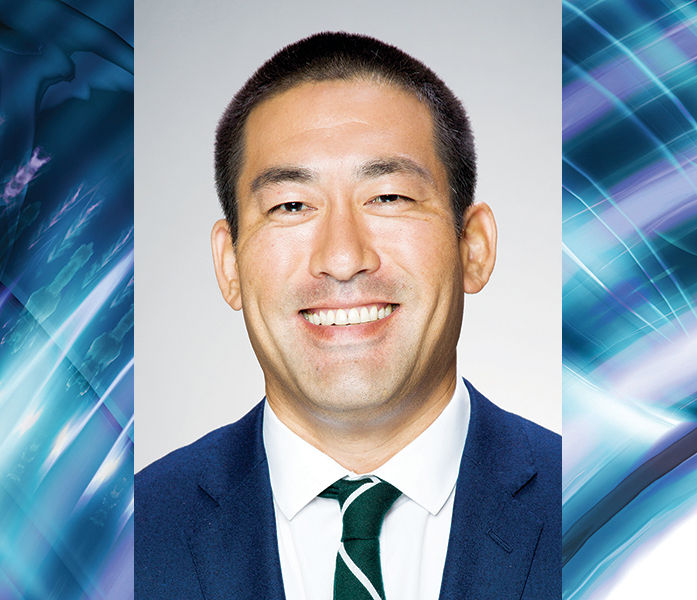As the grandson of H.S. Kawakami, who sailed from Japan to work in Hawaii’s agriculture industry and a son of a grocer, my upbringing and livelihood have been rooted in and dependent on the success of farmers. I have and will continue to advocate for responsible, viable agriculture initiatives for Kauai. This includes HawaiI Dairy Farms.
Last month, Hawaii Dairy Farms completed and submitted its Final Environmental Impact Statement (FEIS) to the State of Hawaii Department of Health. The FEIS concluded that Hawaii Dairy Farms will have no significant impacts to the environment or resort, commercial, residential or recreational areas. Given this and all that I have learned about the proposed dairy over the past few years, I enthusiastically support Hawaii Dairy Farms starting its operations to provide locally produced milk for island families.
I commend everyone who participated in the public discussion about Hawaii Dairy Farms. Community engagement and participation are key to our progress. The public feedback that Hawaii Dairy Farms received encouraged the company to conduct the EIS even though it was not mandated. And now that the facts are out, we know we can rest assured that Hawaii Dairy Farms is a sound project.
I have found Hawaii Dairy Farms to be an honorable local company that has gone above and beyond requirements to ensure that their operation will protect the environment. In addition to preparing the EIS, Hawaii Dairy Farms has committed to ongoing water quality monitoring, increasing effluent pond capacity above regulatory standards, and voluntarily instituting a 1,000-foot buffer from Koloa Drinking Well F as an added safety measure.
When I’m out and about in the community, I hear folks asking questions about the dairy. The FEIS answers these questions. I invite all of you to learn more about Hawaii Dairy Farms based on the facts in the FEIS, which can be found on the DOH Environmental Planning Office’s website as well as the Lihue and Koloa public libraries. Some key facts that I would like to point out are:
w There will be no more than 699 milking cows on the farm. A similar number of cattle and sheep have grazed on the same property in the past. Local ranchers will partner with Hawaii Dairy Farms to care for additional cattle off-site.
w All milk produced on the farm will stay in Hawaii.
w Hawaii Dairy Farms will use a proven, low-impact, environmentally-friendly pasture-based rotational grazing approach, which is very different from the common feedlot model that we’ve seen in the past on Kauai. Cows are rotated to a different area of the farm each day to provide them with the best grass to eat and distribute their natural fertilizer.
w The dairy will operate on land zoned Important Agricultural Lands.
There are other serious considerations when deciding whether or not to support Hawaii Dairy Farms. We are extremely dependent on imports and vulnerable to natural disasters and shipping disruptions. We need to control our own destiny and become more sustainable. Growing more local food is one step in this direction, and Hawaii Dairy Farms is a small piece of this puzzle. If we don’t start now and support farms that can feed us, when will we start? It will be too late when we’re facing our next hurricane.
We have so much more work to do to bolster our agriculture industry, from improving infrastructure to constructing facilities, assisting more products to the marketplace, and so on. The time to continue this work is now because food growing operations cannot be set up instantly.
This is why I believe it is prudent that Hawaii Dairy Farms proceed with its operations at this time. Hawaii Dairy Farms has done its homework and the FEIS, which is based on facts and sound scientific studies, has shown no significant impacts. The farm will be subject to government regulation once in operation. The law will ensure that the land and the water there will be cared for. There are safeguards in place to ensure that Hawaii Dairy Farms is walking its talk.
The bottom line is that Hawaii Dairy Farms deserves the chance to operate. After all, what is the alternative? Hawaii Dairy Farms will ensure that the Important Agricultural Lands on which they operate will be preserved as open farmland in perpetuity. It is not realistic to think that if Hawaii Dairy Farms is prohibited from being on the land, that nothing will ever go there.
Remember too that the agriculture community is watching this process. Those who might like to begin farming ventures will be rightly discouraged if the Hawaii Dairy Farms project does not proceed.
Hawaii Dairy Farms, as well as other food farming ventures, deserve our support and positivity. It’s time to give Hawaii Dairy Farms a chance and see how it will enhance our island and provide for our keiki. Please join me in welcoming Hawaii Dairy Farms into our agriculture sector.
•••
Kauai County Councilmember Derek S.K. Kawakami is a 4th-generation Kauai resident.





We need only to look at other dairies located near the ocean as HDF’s proposed dairy is, to see the serious environmental problems that are sure to arise. The clay soil, close proximity to local drinking water wells, biting flies, and effluent runoff to the pollute our ocean’s marine life, are all a recipe for disaster. Please vote responsibly and reject pro-dairy candidates, and a billionaire’s folly.